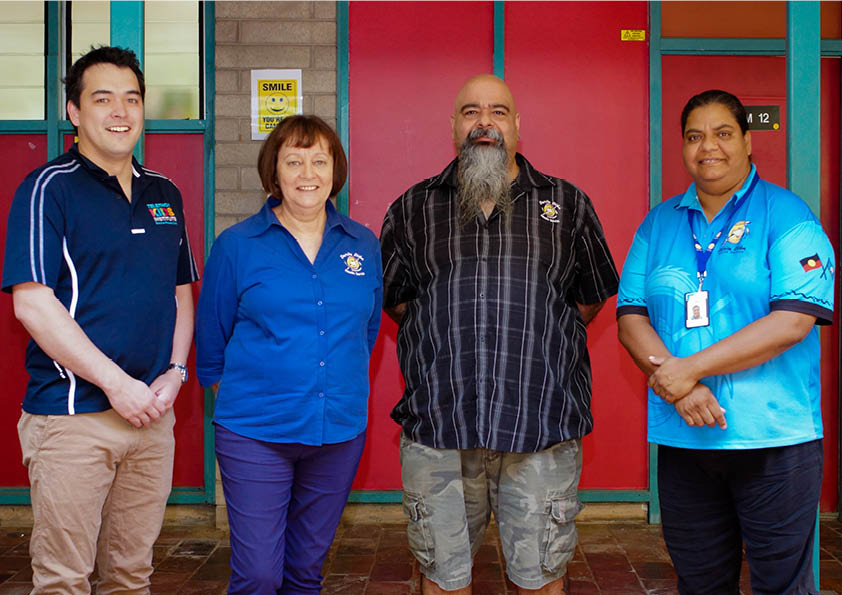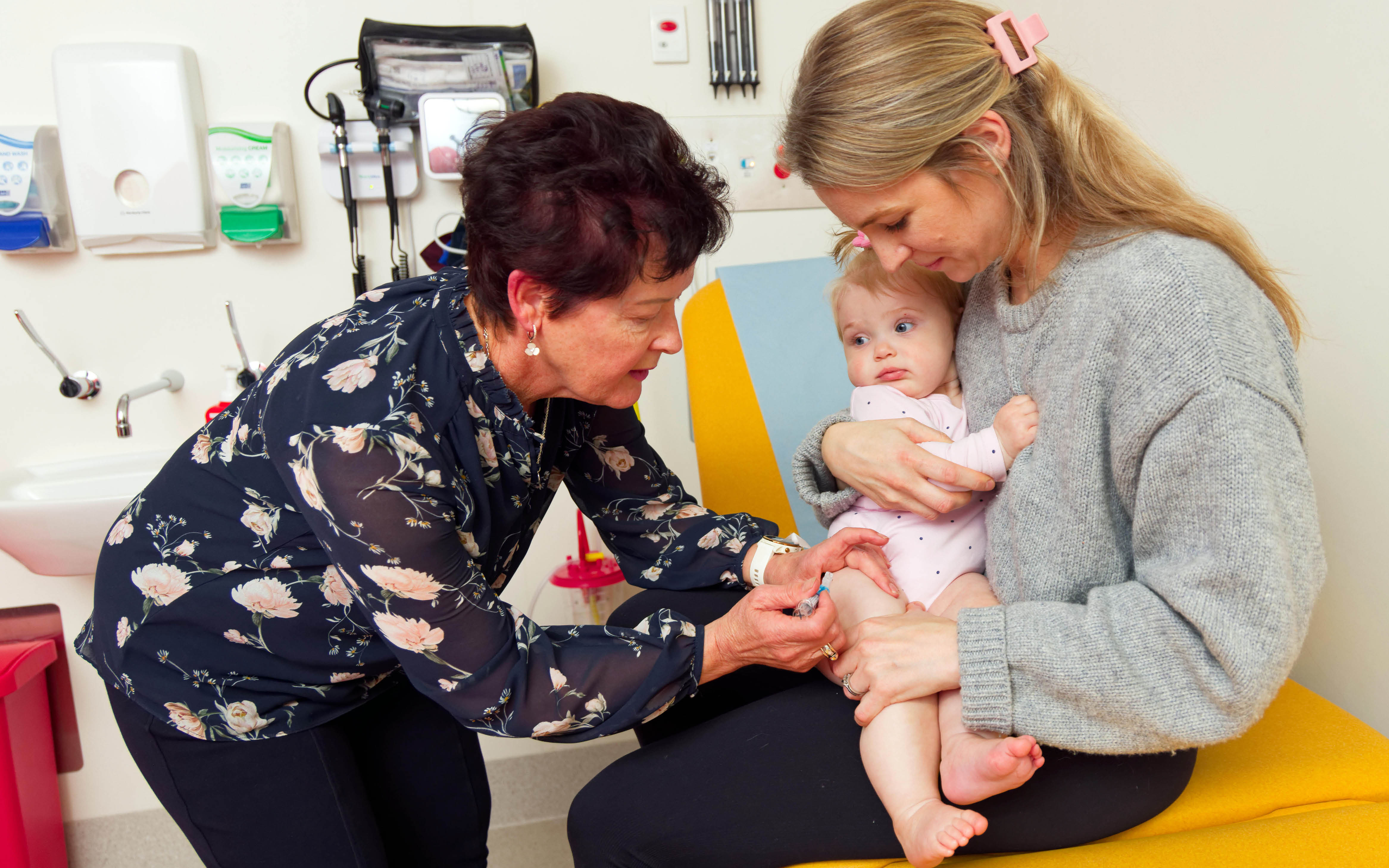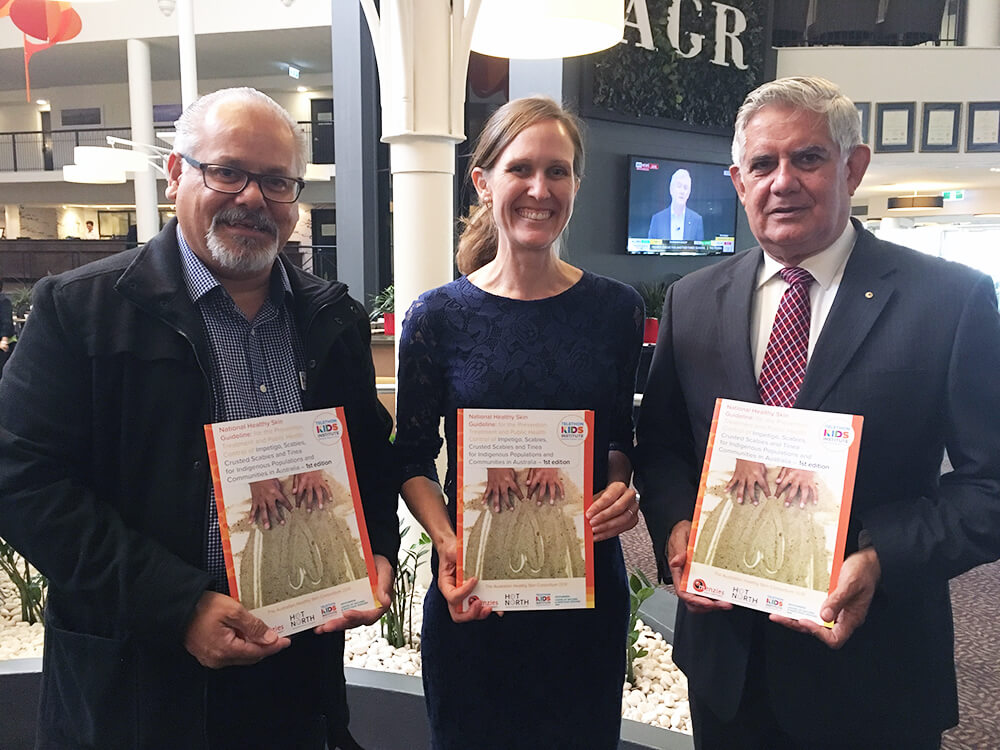Search
Showing results for "Au"
Research
Mindful Self-Compassion for LGBTQ youth: a multi-site randomized controlled trialAmy Penelope Yael Zoe Larissa Finlay-Jones Strauss Perry Waters Marion BPsych(Hons), MPsych(Clinical), MHealthEcon, PhD (Clin Psych) BA, MPH, PhD
Research
An immunometabolomic approach to unmask developmental regulation of innate immunity and asthma riskDeborah James Pat Strickland Read Holt PhD PhD, DSc, FRCPath, FRCPI, FAA Head, Pregnancy and Early Life Immunology Honorary Research Associate

News & Events
Early Years Partnership budget boost welcomedThe Kids Research Institute Australia has welcomed today’s announcement by the Cook Government and Minderoo Foundation of a $34.6 million boost for the Early Years Partnership to achieve better outcomes for children.

News & Events
New RHD research collaboration with Danila Dilba Health ServiceThe Kids Research Institute Australia and Menzies School of Health Research have joined forces with Danila Dilba Health Service to look at improving treatment for RHD.

The mission of the Vaccine Trials Group is to improve the health of the community through immunisation and the prevention of infectious diseases.
Research
Research Note: Adaptive trialsThis Research Note has explored the strengths, risks and potential complexity of adaptive trials
Research
Implementation of a strategy to facilitate effective medical follow-up for Australian First Nations children hospitalised with lower respiratory tract infections: study protocolFirst Nations children hospitalised with acute lower respiratory infections (ALRIs) are at increased risk of future bronchiectasis (up to 15-19%) within 24-months post-hospitalisation. An identified predictive factor is persistent wet cough a month after hospitalisation and this is likely related to protracted bacterial bronchitis which can progress to bronchiectasis, if untreated.
Research
Primary Nasal Epithelial Cells as a Surrogate Cell Culture Model for Type-II Alveolar Cells to Study ABCA-3 DeficiencyATP Binding Cassette Subfamily A Member 3 (ABCA-3) is a lipid transporter protein highly expressed in type-II alveolar (AT-II) cells. Mutations in ABCA3 can result in severe respiratory disease in infants and children. To study ABCA-3 deficiency in vitro, primary AT-II cells would be the cell culture of choice although sample accessibility is limited. Our aim was to investigate the suitability of primary nasal epithelial cells, as a surrogate culture model for AT-II cells, to study ABCA-3 deficiency.
Research
The relationship between physical activity, self-regulation and cognitive school readiness in preschool childrenLimited research exists on the pathways through which physical activity influences cognitive development in the early years. This study examined the direct and indirect relationships between physical activity, self-regulation, and cognitive school readiness in preschool children.

News & Events
National guideline to tackle record rates of skin infectionResearchers have developed the first National Healthy Skin Guideline to address record rates of skin infections in Australia’s Indigenous communities.
